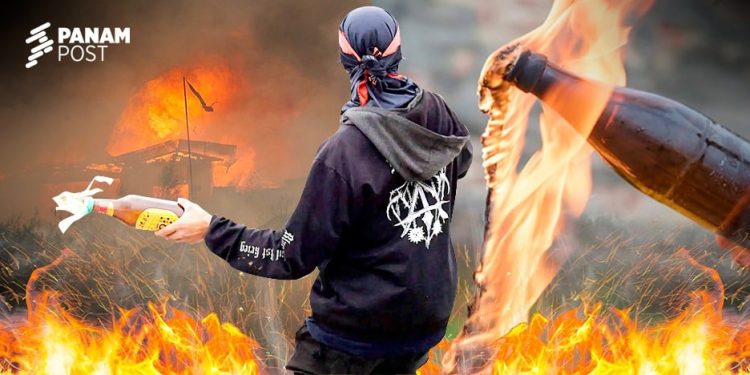
Spanish.- In Chile, there are few voices or theories attributing the devastating forest fires to possible global warming. No one believes that the flames ravaging the regions of Valparaíso and Atacama arose without human intervention. Most suspect intentionality behind them, either through organized criminal action or the largest operation of arsonists ever seen in the country.
There is no other explanation for the discovery of barrels and accelerants at the sites where the fire started, which has plunged the country into mourning. Images taken by drones collect evidence. It is still unknown whether it’s due to malice, profit motives, or pleasure. Meanwhile, authorities maintain a state of catastrophe in the provinces of Marga Marga and Valparaíso, and curfews are in place in the communes of Limache, Quilpué, Villa Alemana, and Viña del Mar due to the risk of new fires.
- Read next: AMLO received funding from the Sinaloa Cartel for his campaign in 2006
- Read next: Otto Reich: “It cannot be taken for granted that the US will restore the sanctions”
The outrage over the actions of potential arsonists in Chile is immense, especially because they cause damage worse than an earthquake. Entire communities have been reduced to ashes. The flames have destroyed everything in their path: crops, houses, businesses, animals, and historical sites. Although the total number of victims is still unknown, it’s a tragedy that has overwhelmed the Legal Medical Service. So far, 112 charred bodies have been recovered.
The justifications of alleged arsonists for manipulating fire in Chile’s forested areas are absurd. For example, last year, a detainee in the Tipaume Natural Reserve claimed he was “experiencing a spiritual transition” after starting a fire in Rengo using a simple piece of paper.
His arrest brought the number of people arrested for their alleged involvement in the forest fires that affected the central-southern zone of the country in 2023 to about 50. Of these, 16% were women and 84% were men. 98% of them were adults, meaning they knew what they were doing. According to the governor of the Valparaíso region, Rodrigo Mundaca, there is “evidently intentionality” behind the 2024 fires.
He is most likely correct, especially since the Ministry of the Interior, through presidential delegations, has filed 43 complaints related to arson, irresponsible fire management, and possession of items to start fires, all within the last year.
Of the 42 accused in the proceedings, only 13 have been convicted, another 12 have agreed to conditional suspension of the proceedings, two are under house arrest, one has been definitively dismissed, and four cases have been closed due to the decision not to persevere.
Pyromania in Chile is a pathology with extensive records. Cases linked to it range from a tenant burning down the house they lived in after a dispute with the owner in Talcahuano, in the Biobío region, to attempted femicides using fire.
However, justice in Chile is flexible when it comes to prosecuting suspected arsonists, according to political analyst Pedro David Hernández. He argues on social media that precautionary measures such as monthly check-ins, national prohibition, and bans on approaching certain areas are inappropriate. “In what kind of mind is an arsonist not a danger to society? Pre-trial detention is the most logical precautionary measure. What is happening to the Guarantee judges? How long will they harm us as a country?” he asks.
Medida cautelar para un piromano que ha sido sorprendido prendiendo fuego en los cerros: “Firma mensual, arraigo nacional y prohibición para acercarse al lugar…” ¿En qué tipo de mente un piromanos no es un peligro para la seguridad de la sociedad? La prisión preventiva es la…
— Pedro David Hernández Farías (@pdhernandezf) February 5, 2024
The Prosecutor’s Office also faces criticism for not formalizing charges against the two detainees suspected of starting the fire that consumed the Viña del Mar Botanical Garden and caused four deaths. “There is not enough evidence linking them to the fire.” The agency has processed them under Article 26 of the Criminal Procedure Code, which grants freedom but requires them to appear in court if summoned.
President Gabriel Boric’s government has been criticized for encouraging judicial leniency, especially after pardoning Brandon Rojas, known as “The Pyromaniac” of the “First Line K-Pop”, who operated during the social outbreak. The opposition still accuses him of lack of balance and reasonableness in granting benefits to someone who, by starting a fire classified as intentional criminal action, could have been sentenced to five to 20 years in prison.
 Versión Español
Versión Español













